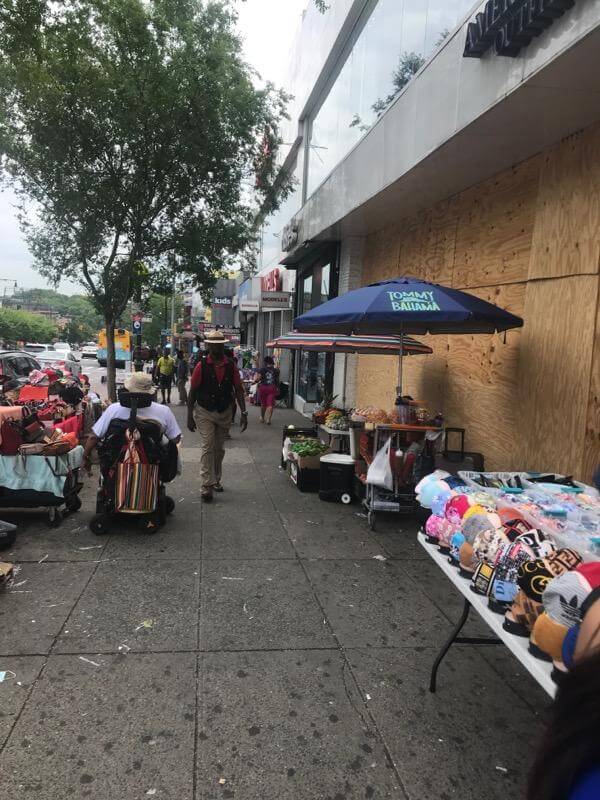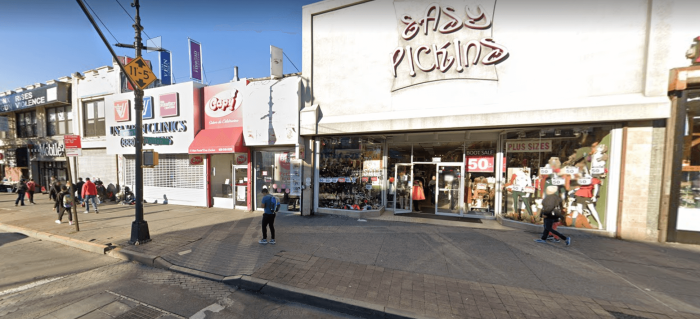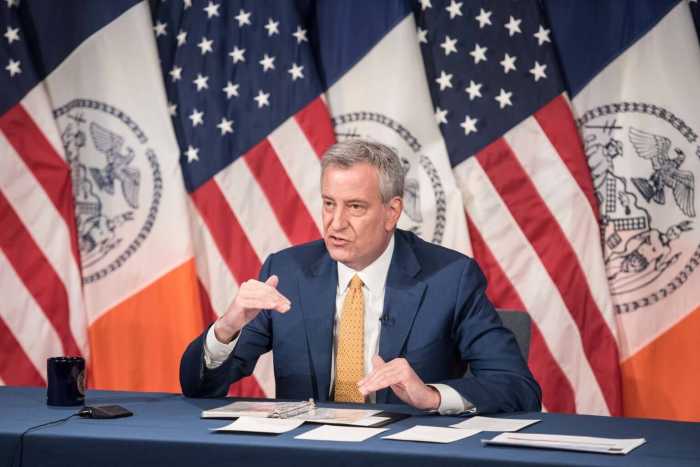As the cap on food vendor permits has not changed since the 80s and many vendors operate illegally, NYC is hoping to change this with legislation that would nearly double permits.
On Jan. 28, the council will vote on Intro-116, which would increase permits from 5,000 to 9,000, create an office of street vendor enforcement and establish a street vendor advisory board.
The bill has 31 sponsors, including Council Members Vanessa Gibson, Diana Ayala and Ruben Diaz Sr., but none could be reached for comment. While this could eliminate the “black market” for licenses and help people make a living, many in the Bronx are not in favor of it.
“Nobody has ever argued the fact that food vendors play an integral part of what is the food business of NYC,” said Lisa Sorin, president of the Bronx Chamber of Commerce. “That being said, over the course of the year you have had a multitude of vendors who are unlicensed or bought their license from someone else for thousands of dollars.”
According to Sorin, there are three reasons for the bill: the immigrant population should be allowed to work as vendors, the growth in population and the council feels that increasing licenses will eliminate the black market.
Sorin told the Bronx Times that discussions about increasing the cap have been on the table for about 30 years, but this is not the right time to do it.
If enforcing illegal vendors is poor now, how will it be with 9,000 people? Furthermore, this isn’t fair to the brick and mortar eateries, which pay property taxes, employees, utilities and are banned on indoor dining currently.
“If you cannot control what’s already there what makes you think additional vendors will do well,” she stressed. “I have to question the hard push for this thing now.”
If anyone thinks Sorin is against food carts they are mistaken. Her father began his career operating a hot dog cart and eventually opened his own business.
Sorin stressed that the chamber supports entrepreneurship, but it’s really about enforcement. Places like Southern Blvd., Fordham Road and Kingsbridge are already inundated with vendors and this could only make things worse. Even communities like Throggs Neck have dealt with them.
Wilma Alonso, executive director of the Fordham Road Business Improvement District (BID), feels the proposed legislation will hurt small businesses even more, especially on Fordham Road where unlicensed vendors (both food and general merchandise) operate with impunity since there is nearly zero enforcement on a corridor where vending is actually prohibited Monday to Saturday per the NYC Administrative Code.
The number of unlicensed vendors along Fordham Road number in the dozens, most of which do not pay taxes and they clog the sidewalks to the point where social distancing is nearly impossible.
On Jan. 21, all of the Bronx BIDs sent a letter to Speaker Corey Johnson and Councilwoman Margaret Chin, the lead sponsor on the bill explaining why they are not in favor of Intro-116.
“As you might understand, there is a lot of distrust in the administration because the current vending laws are not enforced, so why would this newly mandated office that is not empowered to enforce the law, bring about any meaningful reform,” the letter states. “Our recommendation is that the council require the street vendor advisory board to examine the current laws first and then establish and fund the office of enforcement and then consider increasing the number of permits. Passing a law which enacts all three of these policies simultaneously in our current economic environment will not bring about equitable reform.”
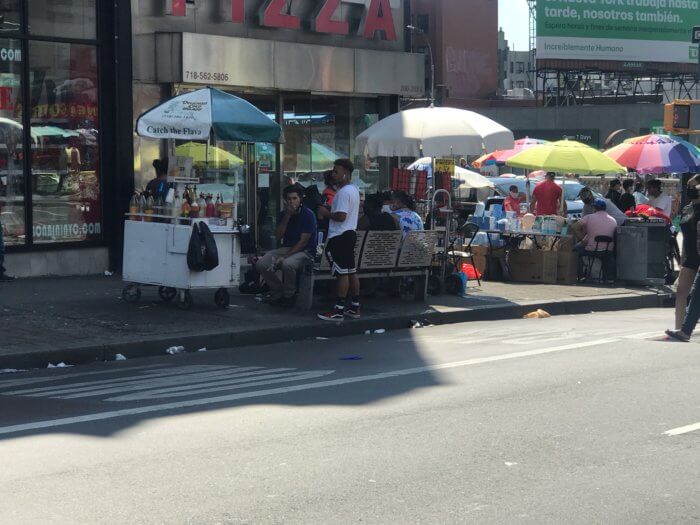
Alonso told the Bronx Times not only is she angry about the proposed bill, but because there is a vacant council seat in her district, she has no one to help her. She spoke to Councilman Carlos Menchaca in Brooklyn, but he does not represent her.
Like Sorin, Alonso questions how if the Consumer and Worker Protection can’t enforce vendors now how will they do it with 9,000?
“I feel this is an out of control situation,” she stressed. “It’s time to reform the street vendor industry and we need to do it right. Fordham is out of control.”
The BIDS also submitted seven amendment recommendations for Intro-116:
- Include a ‘circuit-breaker’ to ensure that additional permits are issued only once the city has the capacity to appropriately regulate and monitor vendors,
- Ensure the street vendor review committee has equal representation of all relevant stakeholders,
- Establish a dedicated complaints registry that allows for New Yorkers to directly report issues surrounding vending,
- Protect pedestrian safety by expanding vending proximity requirements,
- Map allowable vending locations and ensure that these locations are publicly available,
- Strengthen penalties for repeat violations and
- Strengthen community engagement processes for vending location pilot programs.
Councilmen Fernando Cabrera and Mark Gjonaj, chair of the small business committee, understand times are tough and people need to make a living, but caution at how Intro-116 can affect restaurants and the enforcement of the bill.
“While the overall intent of the bill is good- stricter enforcement to protect brick and mortar businesses- we must consider the full impact on vulnerable businesses,” Cabrera said. The COVID-19 pandemic has taken a tremendous toll on small businesses, the “mom and pop” stores that have been an anchor for so many communities for so long. Many closed almost a year ago and have not re-opened.
Those that survived the pandemic lock-down have experienced substantial financial harm. This impacts not only the business, but the entire community as jobs and amenities disappear. This is why we must carefully consider the timing of this legislation. “
Under the proposed legislation, a number of new permits, now referred to as supervisory licenses, would be issued in batches each year beginning in 2022 until 2032. These licenses require at least one supervisory licensee to be present at a pushcart at all times.
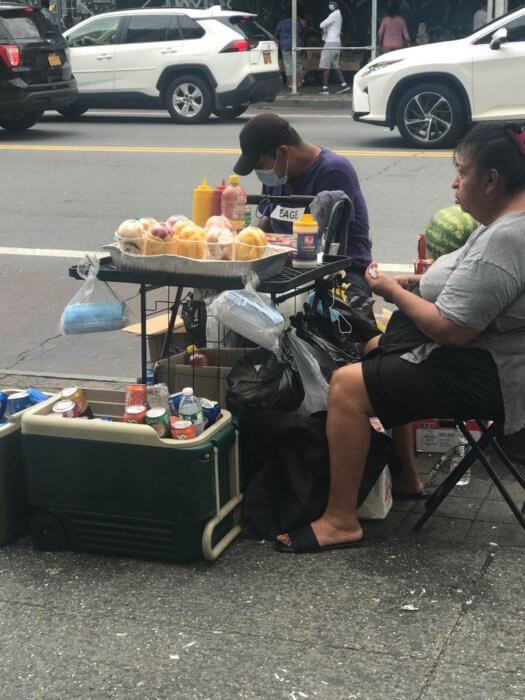
This new requirement will not be applied to existing permits until 2032. The bill will also create a new vending law enforcement unit, which would exclusively enforce vending laws.
It would focus on areas of the city with known vending enforcement challenges, but will respond to all vending complaints and violations. It would also establish a street vendor advisory board to assess the effectiveness of the enforcement unit and the rollout of new permits.
There will be an office of street vendor enforcement, which would consist of enforcement agents who are specially trained in laws and rules related to vending on the streets and sidewalks. This office will be fully operational on or before Sept. 1. Enforcement activities include street patrols to inspect or examine the vending activities of at least 75 percent of permittees or licensees on an annual basis.

